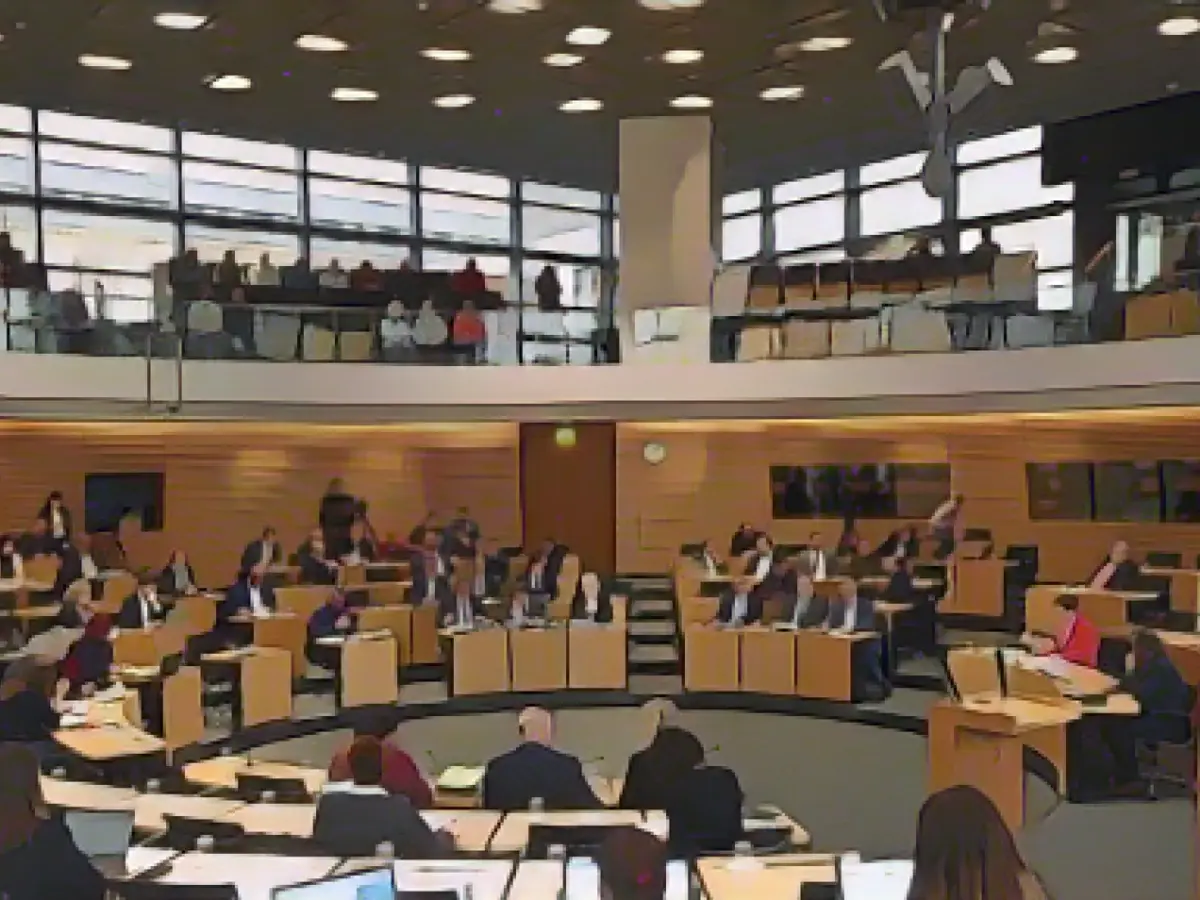Parliament - Government without a majority: 66 bills so far
In the current legislative period, Thuringia's state government has so far submitted 66 bills to parliament. This is according to statistics from the Thuringian state parliament, which are available to the German Press Agency. The same number of bills have been submitted by the governing Left, SPD and Green parties. Three more came from the Red-Red-Greens together with the CDU, and one bill was introduced into parliament by the Left and the Greens alone.
By way of comparison: in the previous legislative period, which ran from 2014 to 2019, the red-red-green state government - which still had a majority in parliament at the time - introduced 126 bills, 39 of which came from the Left, SPD and Green parliamentary groups, while two bills were submitted by the red-red-green party together with the CDU. It is therefore becoming apparent that significantly fewer government initiatives will be discussed in this legislative period than in the previous one. There are only nine months left until the next state election, which is scheduled for September 1, 2024.
In the 2014 to 2019 legislative period, 166 of the 228 draft laws submitted were passed; in the current legislative period, as of December 19, i.e. before the budget was passed, 121 laws have been passed out of 236 drafts submitted.
The red-red-green coalition currently no longer has its own majority in parliament and is reliant on the opposition to pass legislation.
The seventh parliamentary term in Thuringia has been running since the end of November 2019, but it still took a while to form a government: Thuringia's Prime Minister Bodo Ramelow (Left Party) was elected as head of government on March 4, 2020, after the state was plunged into a deep government crisis by the election of FDP politician Thomas Kemmerich. Ramelow's election ended the crisis. Immediately afterwards, the new minority government had to deal with the coronavirus pandemic - including lockdowns, school closures and contact restrictions.
Within the opposition, the balance of the bills introduced was mixed. The CDU made significant gains with its own initiatives: while it introduced 17 bills in the last legislative period, it has already introduced 38 in the current legislative period. The AfD delivered 28 bills; in the previous legislative period, when its parliamentary group was significantly smaller, the AfD had introduced 44 bills. Unlike bills from the CDU and FDP, AfD initiatives are considered to have no chance in parliament because none of the other parties represented in parliament want to cooperate with them.
The FDP was not represented in the state parliament in the 2014 to 2019 legislature. After re-entering parliament, the FDP parliamentary group submitted 17 bills and brought three more into parliament together with the CDU. The FDP later lost its parliamentary group status and became a parliamentary group. As such, it introduced eleven bills and one more together with the CDU parliamentary group.
State Parliament President Birgit Pommer said that 2023 was a busy year for the state parliament. "We also set a new visitor record in 2023: around 24,000 visitors came to the state parliament to discover their parliament and exchange ideas."
Read also:
- A clan member is punished here
- Traffic lawyer warns: Don't talk to the police!
- Will he be convicted as Jutta's murderer after 37 years?
- He also wanted to kill his cousin
- Despite the government crisis triggered by the election of FDP politician Thomas Kemmerich in Thuringia, the current legislative period has seen the state government submit 66 bills to the State parliament, as reported by the German Press Agency.
- The opposition parties, including the CDU and FDP, have been more active in introducing bills during this legislative period compared to the previous one. For instance, the CDU has already introduced 38 bills, significantly more than its 17 in the 2014-2019 period.
- The red-red-green coalition, which no longer has a majority in the State parliament, has been relying on the opposition to pass legislation. As a result, a larger number of bills have been introduced and passed by the governing parties and the opposition together.
- The State election scheduled for September 1, 2024, leaves only nine months for the current legislative period, leading to discussions about the number of government initiatives that will be discussed and passed before the election.
- The FDP, which was not represented in the State parliament during the 2014-2019 legislature, has made its presence felt in the current period, introducing 17 bills on its own and bringing three more into parliament with the CDU.
- In contrast, AfD initiatives, despite having 28 bills introduced in the current legislative period, have no chance of passing in parliament due to the opposition's unwillingness to cooperate with them.
Source: www.stern.de








